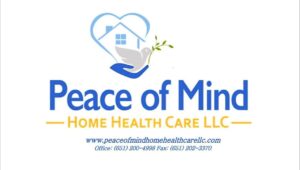When it comes to making important decisions about your health, it’s crucial to have a plan in place. A health care power of attorney (HCPOA) is a legal document that allows you to appoint someone to make medical decisions on your behalf if you become unable to do so. In the state of North Carolina, the laws surrounding HCPOAs are governed by specific statutes and regulations. This article will provide a comprehensive guide to the health care power of attorney in North Carolina, including its purpose, requirements, and benefits.
Understanding the Health Care Power of Attorney
A health care power of attorney, also known as a durable power of attorney for health care, is a legal document that designates an individual, known as an agent or surrogate, to make medical decisions on behalf of another person, known as the principal. This document only becomes effective if the principal becomes incapacitated or unable to make their own medical decisions.
In North Carolina, the health care power of attorney is governed by the General Statutes, specifically Chapter 32A. This legislation outlines the requirements for creating a valid HCPOA and the powers and limitations of the appointed agent.
Purpose of a Health Care Power of Attorney
The primary purpose of a health care power of attorney is to ensure that an individual’s medical wishes are followed when they are no longer able to make decisions for themselves. This legal document allows the principal to appoint a trusted person to act on their behalf and make important medical decisions based on their known wishes, values, and beliefs.
Without a health care power of attorney, medical decisions may be left in the hands of family members or healthcare providers who may not have a clear understanding of the principal’s preferences. By appointing an agent through a HCPOA, the principal maintains control over their medical care even when they cannot communicate their wishes.
Requirements for a Health Care Power of Attorney in North Carolina
Creating a valid health care power of attorney in North Carolina involves specific requirements and considerations. It is essential to understand these requirements to ensure the document is legally binding and enforceable. The following are the key requirements for a HCPOA in North Carolina:
- The principal must be at least 18 years old and of sound mind.
- The document must be in writing and signed by the principal or someone at the principal’s direction.
- The signature must be witnessed by two competent adults. These witnesses cannot be the appointed agent or a relative of the agent.
- If the principal is unable to sign the document, they can direct someone else to sign on their behalf, in their presence, and at their direction.
- The document should clearly state the name and contact information of the appointed agent.
- The principal may include specific instructions or limitations on the agent’s powers.
- The document should include the date of execution.
It is recommended to consult an attorney experienced in estate planning or elder law when creating a health care power of attorney to ensure compliance with all legal requirements and to address any specific concerns or circumstances.
Choosing the Right Agent
Selecting the right agent for your health care power of attorney is a critical decision. The agent will be responsible for making medical decisions on your behalf, so it’s important to choose someone who understands your values, wishes, and beliefs. Here are some factors to consider when selecting an agent:
- Trustworthiness: Choose someone you trust implicitly to act in your best interests and follow your instructions.
- Availability: Ensure that the person you choose is willing and able to take on the responsibilities of being your agent.
- Proximity: Consider selecting an agent who lives nearby or is easily accessible in case of emergencies.
- Communication: Select someone who communicates well and can effectively convey your wishes to healthcare providers.
- Shared Values: Choose an agent who understands your values and beliefs regarding medical treatment and end-of-life decisions.
It is advisable to have a conversation with your chosen agent to discuss your wishes and ensure they are comfortable taking on this responsibility. Communicating your expectations clearly can help avoid misunderstandings or conflicts down the line.
Powers and Limitations of the Agent
Once appointed, the agent has the authority to make medical decisions on behalf of the principal. However, there are certain limitations to their powers. In North Carolina, the agent is required to make decisions that align with the principal’s known wishes, including any limitations or instructions stated in the HCPOA.
If the principal’s wishes are unknown, the agent is expected to make decisions based on what they believe the principal would have wanted, taking into account the principal’s best interests and values. The agent should consult with healthcare providers and other individuals involved in the principal’s care to gather information and make informed decisions.
It is important to note that the agent cannot make decisions regarding certain treatments, such as psychosurgery, sterilization, or involuntary commitment for mental health treatment, unless explicitly authorized in the HCPOA. These limitations are in place to protect the rights and autonomy of the principal.
Revoking or Amending a Health Care Power of Attorney
It is not uncommon for individuals to change their minds or circumstances, necessitating the revocation or amendment of a health care power of attorney. In North Carolina, the principal has the right to revoke or amend their HCPOA at any time, as long as they are of sound mind and able to communicate their wishes.
To revoke a health care power of attorney, the principal must notify the agent and any healthcare providers involved in their care. It is advisable to do so in writing to ensure clarity and avoid any misunderstandings. Once the revocation is communicated, the agent’s authority is terminated, and the principal regains control over their medical decisions.
If the principal wishes to amend their HCPOA, they can create a new document that supersedes the previous one. The new document should clearly state that it revokes any prior health care power of attorney and should be signed, witnessed, and executed according to the established requirements.
Benefits of a Health Care Power of Attorney
Creating a health care power of attorney offers several benefits, both for the principal and their loved ones. Some of these benefits include:
- Ensuring Personal Autonomy: A HCPOA allows individuals to maintain control over their medical care even when they cannot make decisions for themselves.
- Peace of Mind: Knowing that a trusted individual is appointed to make medical decisions can provide peace of mind, both for the principal and their loved ones.
- Reducing Family Conflicts: By clearly stating their wishes and appointing an agent, individuals can help prevent disputes among family members regarding medical decisions.
- Facilitating Consistent Care: Having a designated agent ensures consistent decision-making and can help healthcare providers provide appropriate care.
- Supporting End-of-Life Planning: A health care power of attorney is an important component of advance care planning, allowing individuals to make decisions about end-of-life care and treatment preferences.
Conclusion
The health care power of attorney is a crucial legal document that allows individuals to maintain control over their medical care even when they cannot make decisions for themselves. In North Carolina, the requirements and regulations surrounding HCPOAs are governed by specific statutes. By understanding the purpose, requirements, and benefits of a health care power of attorney, individuals can make informed decisions and ensure their medical wishes are followed.
FAQs (Frequently Asked Questions)
1. Can I appoint more than one agent in my health care power of attorney?
Yes, North Carolina law allows you to appoint multiple agents, known as co-agents or successor agents, to act together or successively. However, it is important to consider the potential complications and ensure that the appointed agents can work together harmoniously.
2. Can I change my health care power of attorney if I no longer trust my chosen agent?
Yes, you have the right to revoke or amend your health care power of attorney at any time, as long as you are of sound mind. If you no longer trust your chosen agent, you can revoke the document and create a new one designating a different agent.
3. Can my health care power of attorney override my own decisions if I am still able to communicate?
No, a health care power of attorney only becomes effective if you become incapacitated or unable to make your own medical decisions. As long as you are of sound mind and able to communicate, your own decisions will take precedence over any decisions made by your appointed agent.
4. Can I use a health care power of attorney to refuse life-sustaining treatment?
Yes, a health care power of attorney can include instructions regarding life-sustaining treatment. If you wish to refuse certain treatments, such as artificial ventilation or artificial nutrition, you can clearly state your preferences in the document. It is important to discuss these wishes with your agent to ensure they understand and are willing to carry out your instructions.
5. What happens if I do not have a health care power ofattorney in North Carolina?
If you do not have a health care power of attorney in North Carolina and you become incapacitated or unable to make your own medical decisions, the state’s laws will dictate who has the authority to make those decisions on your behalf. In North Carolina, the default decision-making hierarchy is as follows:
- Spouse or registered domestic partner (if applicable)
- Adult children
- Parents
- Adult siblings
- Adult relatives
- Other individuals deemed appropriate by a court
If multiple individuals within the same category are available and willing to serve as your decision-maker, they must act jointly unless you have stated otherwise in a health care power of attorney or other legal document. This default hierarchy may not align with your wishes or values, which is why it is important to have a health care power of attorney in place to ensure your preferences are honored.
Summary
A health care power of attorney is a vital legal document that allows individuals in North Carolina to maintain control over their medical care even when they are unable to make decisions for themselves. By appointing a trusted agent, individuals can ensure that their medical wishes, values, and beliefs are followed. Understanding the requirements and limitations of a health care power of attorney is crucial to creating a legally binding and enforceable document. Benefits of a health care power of attorney include personal autonomy, peace of mind, reduced family conflicts, consistent care, and support for end-of-life planning. By taking the necessary steps to create a health care power of attorney, individuals can have confidence that their medical decisions will be made according to their wishes, even in challenging circumstances.
FAQs (Frequently Asked Questions)
1. Can I appoint more than one agent in my health care power of attorney?
Yes, North Carolina law allows you to appoint multiple agents, known as co-agents or successor agents, to act together or successively. However, it is important to consider the potential complications and ensure that the appointed agents can work together harmoniously.
2. Can I change my health care power of attorney if I no longer trust my chosen agent?
Yes, you have the right to revoke or amend your health care power of attorney at any time, as long as you are of sound mind. If you no longer trust your chosen agent, you can revoke the document and create a new one designating a different agent.
3. Can my health care power of attorney override my own decisions if I am still able to communicate?
No, a health care power of attorney only becomes effective if you become incapacitated or unable to make your own medical decisions. As long as you are of sound mind and able to communicate, your own decisions will take precedence over any decisions made by your appointed agent.
4. Can I use a health care power of attorney to refuse life-sustaining treatment?
Yes, a health care power of attorney can include instructions regarding life-sustaining treatment. If you wish to refuse certain treatments, such as artificial ventilation or artificial nutrition, you can clearly state your preferences in the document. It is important to discuss these wishes with your agent to ensure they understand and are willing to carry out your instructions.
5. What happens if I do not have a health care power of attorney in North Carolina?
If you do not have a health care power of attorney in North Carolina and you become incapacitated or unable to make your own medical decisions, the state’s laws will dictate who has the authority to make those decisions on your behalf. In North Carolina, the default decision-making hierarchy is as follows: spouse or registered domestic partner, adult children, parents, adult siblings, adult relatives, and other individuals deemed appropriate by a court. Having a health care power of attorney ensures that your preferences are honored, regardless of the default hierarchy.
Creating a health care power of attorney in North Carolina is a proactive step towards ensuring that your medical wishes are respected and your values are upheld. By understanding the purpose, requirements, and benefits of a health care power of attorney, individuals can make informed decisions and have peace of mind knowing that their medical care is in trusted hands.




